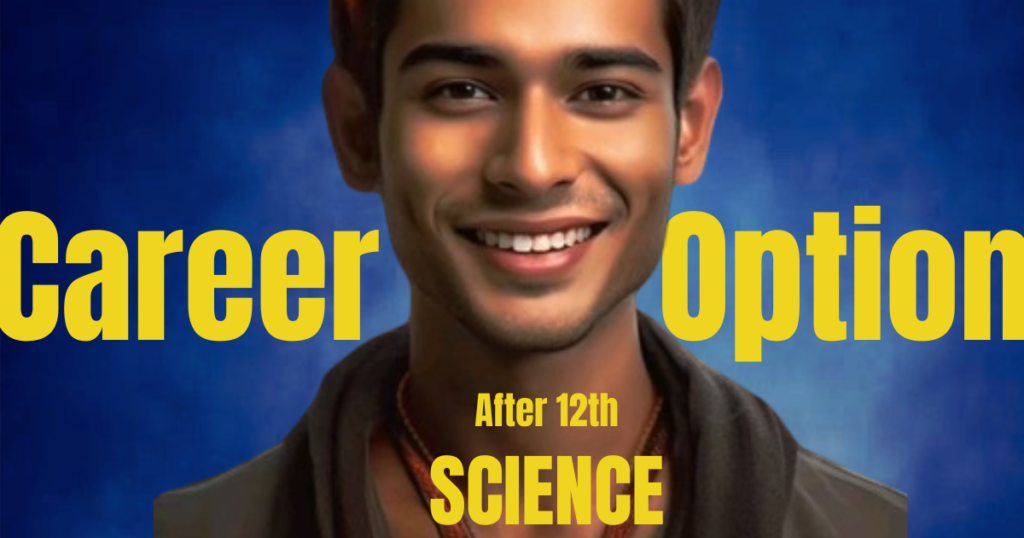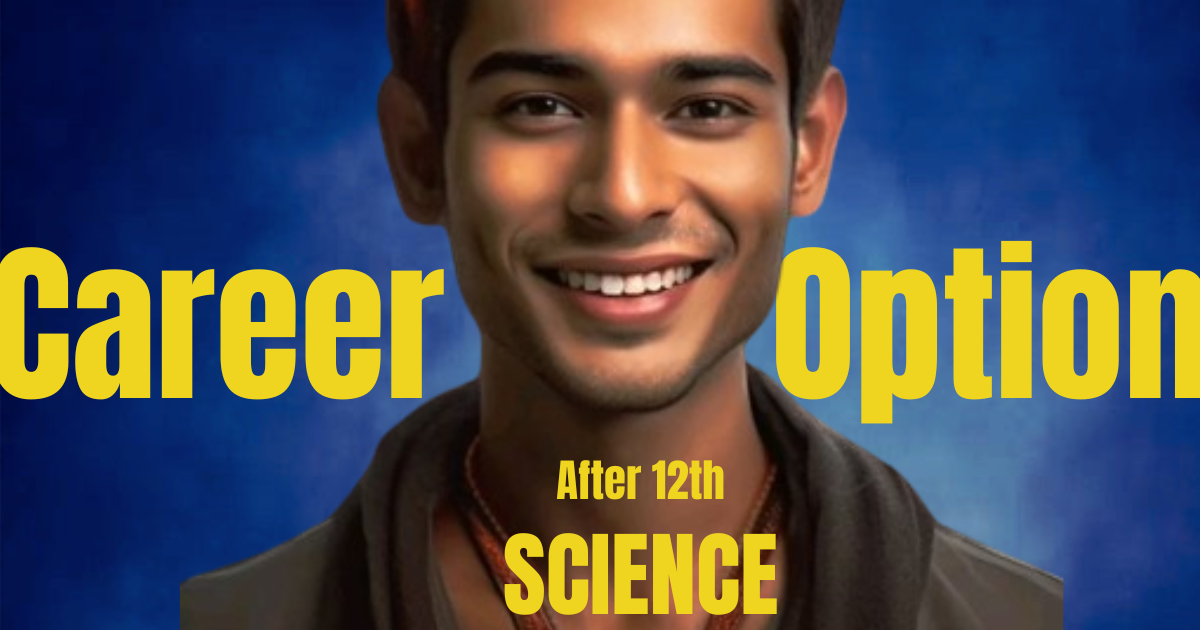
If you are study a class 12th Science then the first question comes to mind is “What should I do after 12th science?”. In this blog we will discuss about the best career option after 12th science to help you choose the right career.
How do I Choose the Right Course After 12th Science.
Choosing the best career option after completing 12th science depends on your interests, Future scope, and career goals.Here’s a broad overview of some of the most popular and promising career paths for science students, Follow Steps:
- Know Your Interest: If you choose any course then you will try to interested this course.
- Future Scope: If you are interested in any course then you should see what is the scope of the course.
- Understand Course: If you know the future scope of any course and are also interested, then it is very important for you to understand the course.
Best Course/ Career after 12th science
- Engineering
1.Computer Science Engineering (CSE): Focuses on software development, algorithms, and
computer systems.
2. Mechanical Engineering: Deals with designing and manufacturing mechanical systems.
3.Electrical Engineering: Involves the study of electrical systems, circuits, and power generation.
4.Civil Engineering: Focuses on construction, infrastructure, and urban development.
5.Chemical Engineering: Involves the study of chemical processes and production.
- Medicine and Healthcare
1. MBBS (Bachelor of Medicine, Bachelor of Surgery): The primary degree for aspiring doctors.
2. BDS (Bachelor of Dental Surgery): Focuses on dental sciences.
3.BAMS (Bachelor of Ayurvedic Medicine and Surgery): Studies traditional Indian medicine.
4.BHMS (Bachelor of Homeopathic Medicine and Surgery): Focuses on homeopathic medicine.
5.B.Pharm (Bachelor of Pharmacy): Prepares for a career in pharmaceutical sciences.
6.Nursing: Offers various levels of study including B.Sc. Nursing and Diploma in Nursing.
- Pure Sciences and Research
1.B.Sc. (Bachelor of Science): In various disciplines like Physics, Chemistry, Biology, Mathematics,
and Environmental Science.
2.Integrated M.Sc.: An integrated course combining bachelor’s and master’s in sciences.
3.B.Sc. Agriculture: Focuses on agricultural sciences and practices.
- Information Technology
1.BCA (Bachelor of Computer Applications): Prepares for a career in IT and software development.
2.B.Sc. IT: Similar to BCA, with a focus on information technology.
- Allied Science Fields
1.Biotechnology: Combines biology and technology, focusing on genetic engineering, microbiology, etc.
2.Microbiology: The study of microorganisms and their applications.
3.Biochemistry: The study of chemical processes within and related to living organisms.
4.Forensic Science: The application of science to criminal and civil laws.
- Commerce and Management (For Science Students Interested in Business)
1.BBA (Bachelor of Business Administration): Prepares for management and administrative roles.
2.CA (Chartered Accountancy): A professional course for aspiring accountants.
3.B.Com (Bachelor of Commerce): Focuses on commerce, finance, and business studies.
- Interdisciplinary and Emerging Fields
1.Environmental Science: Focuses on environmental protection and sustainable practices.
2.Data Science: Involves statistics, data analysis, and machine learning.
3.Robotics: Combines engineering and computer science to create and manage robots.
4.Aerospace Engineering: Focuses on the design and development of aircraft and spacecraft.
Steps to Choose the Right Career
1.Self-Assessment: Evaluate your interests, strengths, and career aspirations.
2.Research: Look into various career options, course details, and future prospects.
3.Consultation: Seek guidance from career counselors, mentors, and professionals in the field.
4.Entrance Exams: Prepare and appear for relevant entrance exams for your chosen field (e.g.,
JEE for engineering, NEET for medical).
5.Courses and Colleges: Research and apply to colleges that offer the best programs in your
chosen field.
Choosing the right career path requires careful consideration of your personal interests, skills, and long-term career goals.
